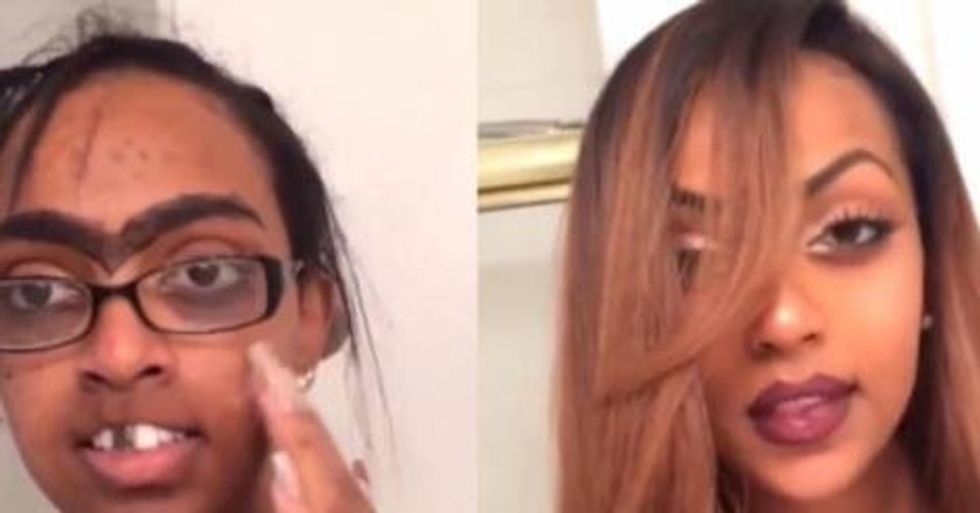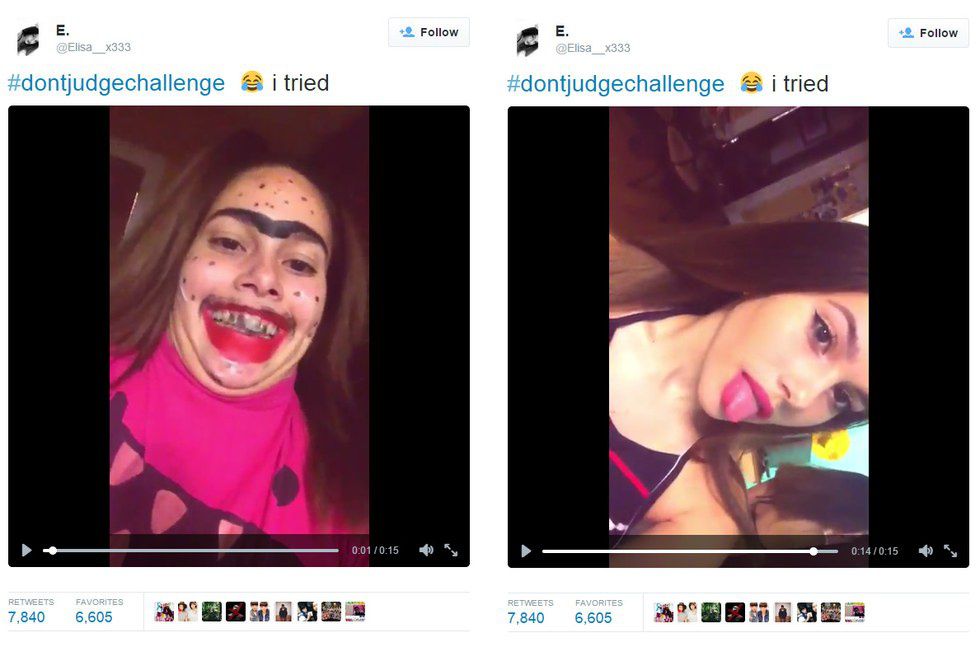Over the past week, a new trend, called the #DontJudgeChallenge, has been raging across social media networks. The challenge is based on the adage don’t judge a book by its cover and originated from YouTube user Em Ford, who posted a video called "You Look Disgutsing," where she removed her makeup to reveal her real face. In the video, Ford called for an end to the unrealistic beauty expectations set by social media.
However, while the setup of the #DontJudgeChallenge videos are similar, the premise has been twisted by participants in the challenge that accomplishes the exact opposite of its goal — to shame those with undesirable facial features.
The challenge has grown in its popularity, with the hashtag filled with videos and even spurring the creation of its own Twitter account, @DontJudgeCHLNGE. Many social media users, guys and girls alike, who partake in the challenge instead took it as a way to reinforce how physically attractive they are, first by using absurd amounts of makeup to cover their face with fake acne, draw on a unibrow and even go so far as to make it seem as if they have crooked teeth. After making a few derpy faces at the camera, they cover the camera and the video transitions to show the user with just the right amount of makeup on and smiling at the camera.

The most outstanding problem to this challenge is the sheer hypocrisy in the way it is being used and manipulated to show off what society deems to be physically attractive. By giving themselves acne, wearing glasses and drawing on other undesirable facial features, these users are simply shaming those who do possess them. In addition, the overwhelmingly positive responses they get in the form of retweets, favorites and tweet replies in the form of heart eyes emojis further reinforces the idea anything less than perfect skin, nice eyebrows and a straight, white smile is considered unattractive and undesirable. Having acne and glasses are two very real problems young people face and to participate in a challenge that deems these features unappealing takes a hit on the self-confidence of those struggling with their self-image and reaching body-positivity.
Some social media users have recognized the contradiction behind the #DontJudgeChallenge and have responded with tweets pointing out the hypocrisy and voicing their outrage behind the trend.
Other videos, such as the one below, take the #DontJudgeChallenge as an opportunity for people to understand the true meaning behind the saying don't judge a book by its cover. Videos such as these better reinforce the primary purpose behind the challenge — to be accepting of oneself and others no matter what they look like on the outside.
<span id="selection-marker-1" class="redactor-selection-marker" data-verified="redactor"></span>
Another issue is the fact that users who are participating in this challenge are already confident in themselves and are simply using the hashtag to videotape themselves and share their post as a means of seeking validation and confirming what they already know to be true — that they are attractive, beautiful, cute and above all, desirable. This challenge was not made for attractive young guys and girls to show off and parade their beauty around the streets of social media. It was made to uplift those struggling with self-confidence, to help them realize that it’s okay and normal to have acne and wear glasses. If the challenge is called the #DontJudgeChallenge, then why is it only reinforcing us to do just that?























